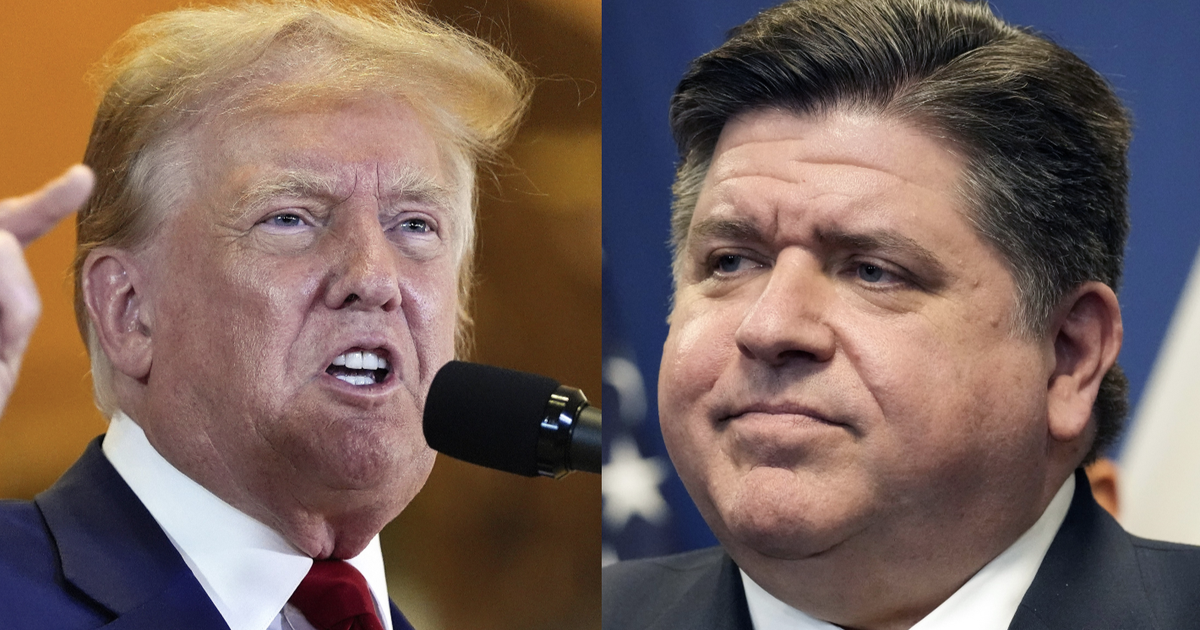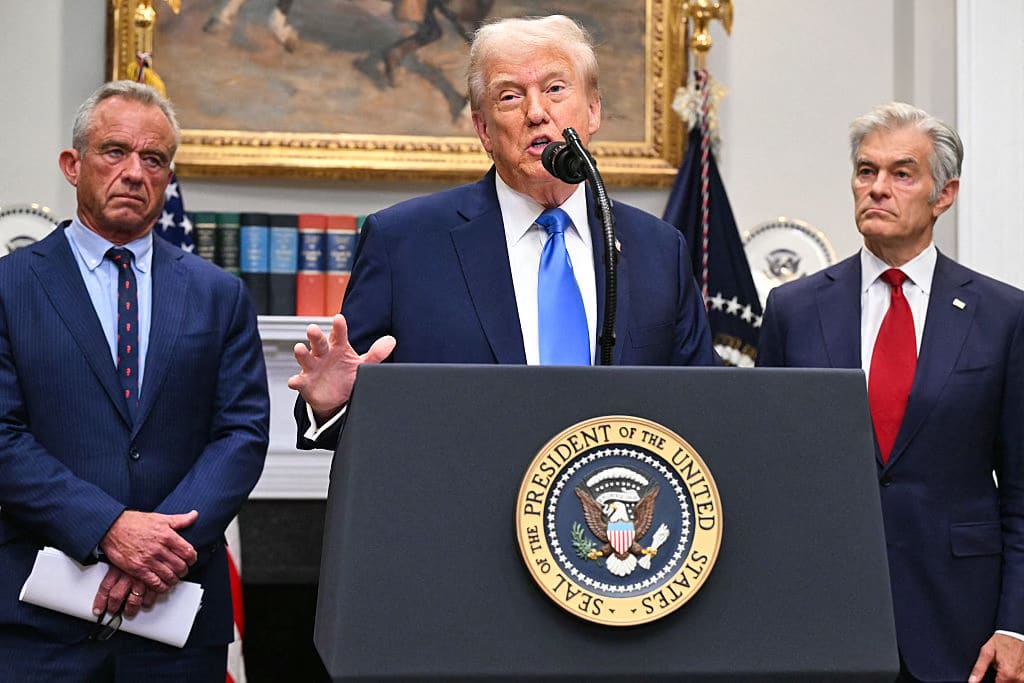Transcript: Scott Gottlieb discusses coronavirus on "Face the Nation," April 11, 2021
The following is a transcript of an interview with former FDA Commissioner Scott Gottlieb that aired April 11, 2021, on "Face the Nation."
MARGARET BRENNAN: We turn now to former FDA commissioner and Pfizer board member Dr. Scott Gottlieb, who joins us from Westport, Connecticut. Good morning to you, Doctor.
DOCTOR SCOTT GOTTLIEB: Good morning.
MARGARET BRENNAN: The governor- the governor of Michigan name checked you in a press conference this week as one of the health experts she has recently consulted with. So let's start there. What do you think of her request to the White House to surge vaccine supply? A number of health experts, the former surgeon general, for example, have said this is a mistake on the White House's part, not to deliver her the doses she says she needs.
DR. GOTTLIEB: Well, look, it's a request that's been made for weeks now, and I think we should have done it weeks ago. It's never too late to do it. And it's not just additional vaccine, but it's the resources to actually get the vaccine into arms. Some of the federal resources that FEMA has, they're developing these mobile vans to go into communities to- to ramp up vaccination. I think we need to think about putting those resources into hotspots. It's been sort of a Hunger Games for vaccines among states so far. And we need to think differently about this pandemic. If you look at all the planning for past pandemics, the flu planning that we've done in the past, even planning for bioterrorism incidents, it always contemplated surging resources into hot spots. They never perceived that there was going to be a confluent national epidemic, but there were going to be localized outbreaks. That, in fact, is likely what we're going to see going forward. We're not going to see a confluent epidemic, but we'll see these hotspots. So we need to get in the habit of trying to surge resources into those hotspots to put out those fires of spread. And it's not just Michigan right now. It's the entire Great Lakes region.
MARGARET BRENNAN: Is there a good reason to be sticking to the plan of only delivering doses based on population size?
DR. GOTTLIEB: Yeah, governors are going to complain about it. Every governor wants their allocation, but we're going to be in a situation probably as early as three weeks right now- three weeks from now, where supply outstrips demand. And I think a lot of states are going to see themselves with excess supply and excess appointments. So it's going to be a shame to look back and in retrospect, realize that we probably should have put more vaccine into some of these hot spots to snuff them out earlier. Now, it's tough because the vaccine does take time to have its effect. It doesn't have an immediate effect, and that's why we should have done it earlier. It's never too late. But if we start surging supplies into Michigan now, start surging capacity to deliver those supplies into Michigan, it could have an impact on the tail-end of the epidemic that they're experiencing. There are some signs that they're- they're rolling over right now, that cases may be starting to come down. They may be reaching a turning point. A lot of their cases are in younger people, people who haven't been eligible for vaccination. If you look at the cases, about 15% increase in cases for those under the age of 18, a 50% increase for people between the age of 20 and 29 a 30% increase for people between the ages of 30 and 39. So they're occurring in groups that haven't been vaccinated.
MARGARET BRENNAN: And the governor and the CDC director both highlighted youth sports activities as a possible vector of transmission. What do parents at home take away from that? Do they send their kids to the classroom but not let them go to lacrosse practice?
DR. GOTTLIEB: Well, what we've seen consistently through this whole pandemic is that the risk in the schools correlates with the risk in the community. So if you're in a community that has relatively low prevalence and that's a lot of parts of the country right now, things are starting to look better across a lot of parts of the country. The risk in the schools is lower. If you're in a community that has a high prevalence like- like the metro Detroit region, the risk in the schools is higher. And in fact, a lot of the outbreaks that they're seeing are associated with the schools. There's been a 17% increase in outbreaks in the community associated with spread that they think originated in schools in the first week of April if you look at the Michigan data. So I think it was prudent that the governor tap the brakes or at least make- made recommendations to local authorities to tap the brakes on extracurricular activities and also high schools. They're going to need to take a pause until they get over this- this surge of infection that they're seeing right now. But in most parts of the country, I think that you can open schools safely. You can continue those activities safely in lower prevalence environments.
MARGARET BRENNAN: Both the governor and the California school superintendent were reluctant to embrace the idea of a mandate for a COVID vaccine for kids. Why you have to be vaccinated to go to school in most states. Why should COVID be any different?
DR. GOTTLIEB: Look, people have- have come to accept the other vaccines in the pediatric schedule that you reference, measles, mumps, rubella, flu vaccines, I think this is novel. I think issues around COVID have become an unfortunate political flashpoint in this country. And I think you're going to see governors across the political spectrum be reluctant to mandate it, in part because they know if they step into this debate and impose mandates, that's going to engender more opposition. So they're likely to leave it up to local districts at least to start the year. I think what's going to happen is if you see outbreaks in local communities, they'll be pressure for local school boards to mandate the vaccine. And I think you're also, unfortunately, in some- some communities probably going to see fights among parents trying to influence local school boards to mandate vaccination or local health districts to mandate vaccination among kids. So this is going to play out at a local level. Hopefully we enter into the school year where enough adults have vaccine that we don't see outbreaks in the schools. Again, the community spread is the best, best predictor of what happens in the schools. And if you look at the data out of Israel, you're seeing cases come down substantially among kids below the age of 16, not because they're vaccinated, but because their parents are vaccinated. So they're not bringing the infection into the schools.
MARGARET BRENNAN: What do you think of this idea of vaccine passports?
DR. GOTTLIEB: I think we should allow people to own the information about whether or not they've been vaccinated right now, you don't own that information. The card that you got can be bought on eBay. It's not going to be verification. We've piggybacked reporting on whether or not you've been vaccinated on the child immunization scheme. There's 64 districts that the states report to on whether- on who's been vaccinated for COVID. That system is- is actually the system that states report to on childhood immunization. It can't be queried by individuals. You can't get access to that information.
MARGARET BRENNAN: Yeah.
DR. GOTTLIEB: So we need to create a way for people to own this.
MARGARET BRENNAN: OK I've got to cut you off there. Dr. Gottlieb, thank you very much. We'll be right back.



